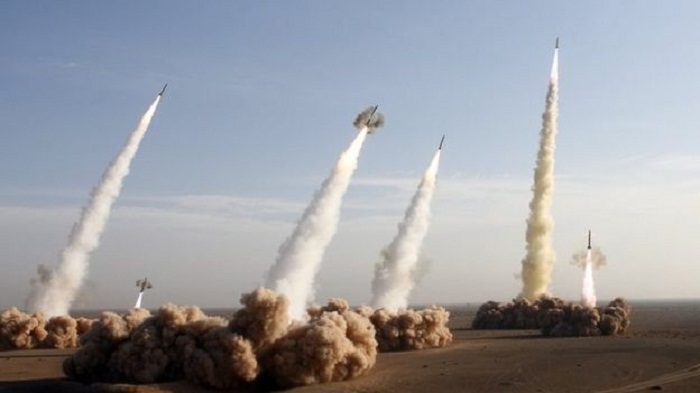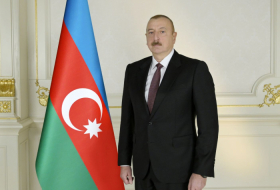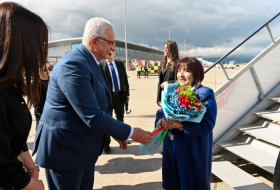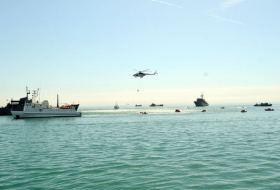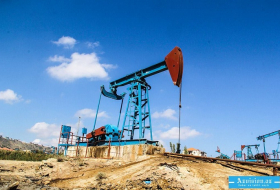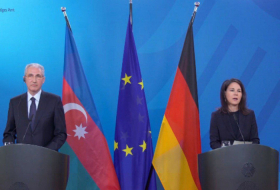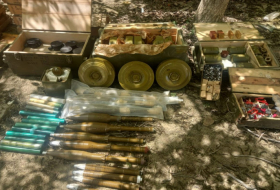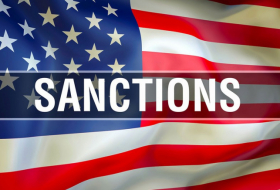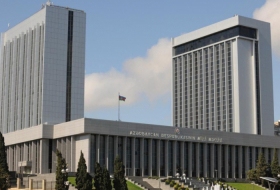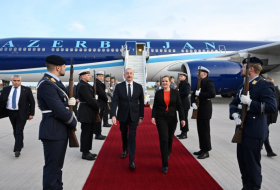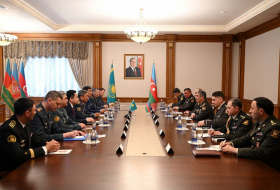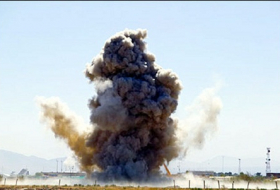"We are closely monitoring developments," state TV quoted Salehi as saying. "If they implement the ISA, Iran will take action accordingly." Iran`s most powerful authority, the Supreme Leader Ayatollah Ali Khamenei, warned in November that an extension of U.S. sanction would be viewed in Tehran as a violation of the nuclear accord.
To be sure, that was merely jawboning by Iran, which has far less leverage and far more to lose if it antagonizes Washington and provokes the US into reimposing sanctions upon the Gulf nation, amounting to the tune of over 1 million barrels per day in foregone oil exports that would be taken offline, should the US impose similar sanctions as those which took the country`s crude export production largely offline in the 2013-2015 timeframe.
It is also the lesser of Iran`s worries: a far bigger concern is whether Trump will tear up Obama`s landmark nuclear agreement.
This was confirmed today when the Iranian defense minister warned that Donald Trump could trigger a world war and the `destruction` of Israel and small Gulf Arab states if he provokes the Middle Eastern power. The warning comes as Trump is signalling he may follow through with his campaign promise to pull out of the nuclear pact. This has led to panic among US allies in the Gulf, Iranian Defense Minister Hossein Dehghan has claimed quoted by the Mail.
"Even though a businessman, the assistants that ... (Trump) has chosen may map a different path for him, and this has led to unease, particularly among Persian Gulf countries,` Dehghan told a security conference in Tehran, according to Iran`s Mehr news agency.`Considering Trump`s character and that he measures the cost of everything in dollars, it does not seem likely that he would take strong action against our country,` he said.
"Enemies may want to impose a war on us based on false calculations and only taking into consideration their material capabilities... Such a war would mean the destruction of the Zionist regime (Israel) ... and will engulf the whole region and could lead to a world war,` Mehr quoted Dehghan as saying.
"Among other consequences of the war, would be the destruction of the city-states on the southern shore of the Persian Gulf, because they lack popular support,` Dehghan said, referring to small Western-allied Gulf states such as the United Arab Emirates, Bahrain and Qatar.
Naturally, what`s bad for Iran is great for Israel, which is why Israeli Prime Minister Benjamin Netanyahu, who has been a fierce critic of the agreement, said he was hoping to work with Trump to dismantle the deal. He said: `I know Donald Trump. And I think his attitude, his support for Israel is clear. He feels very warmly about the Jewish state, about the Jewish people.`
Pressed on what those options might be, Netanyahu said he had `about five things in my mind`, but did not elaborate.
Meanwhile, John Brennan, the outgoing director of the CIA, last month warned that Trump`s opposition to the Iran deal was the "height of folly" and "would be disastrous" he told the BBC adding "It really would: for one administration to tear up an agreement that a previous administration made would be almost unprecedented."
He added that it "could lead to a weapons program inside of Iran that could lead other states in the region to embark on their own programs with military conflict, so I think it would be the height of folly if the next administration were to tear up that agreement."
Another foreign policy expert, Jacob Parakilas of the London-based think tank Chatham House, told Reuters that "It`s difficult to see the advantage for the US in abrogating the deal at this stage. It would be nearly impossible to convince Europe, Russia and China to restore their sanctions on Iran int he absence of clear evidence of Iranian violations of the deal. So any sanctions to the US restored would have much less impact on the Iranian economy."
* * *
A vastly different read of the rapidly changing geopolitical narrative in the middle east, however, was laid out by the Wall Street Journal, which explained that "Donald Trump proposes a big mideast strategy shift", one which would seek less regime intervention and government overthrow.
As the WSJ writes, Donald Trump told us something important a few days ago about the profoundly different approach he intends to take toward the Middle East and the threat of Islamic extremism. The president-elect`s message was largely overlooked because it came in the middle of a typically raucous and rambling "thank you" rally in Cincinnati. News reports focused on his announcement that he would nominate as secretary of defense Gen. James Mattis -- "Mad Dog Mattis" as he seems destined to be called by his new boss.
In a separate passage, one in which Mr. Trump clearly was following a script rather than freelancing, he said: "We will stop looking to topple regimes and overthrow governments, folks." After wasting "$6 trillion" in Middle East fights, he said, "our goal is stability not chaos."
He then added that "we will partner with any nation that is willing to join us in the effort to defeat ISIS and radical Islamic terrorism...In our dealings with other countries, we will seek shared interest wherever possible and pursue a new era of peace, understanding and goodwill."
Hinting at a U-turn from the legacy US foreign policy, one dominated by CIA intervention and a neocon desire to interfere in domestic affairs, those words are "freighted with deep meaning, and offer some powerful indicators of the approach a Trump presidency will take in a region that has bedeviled every president since Richard Nixon. Mr. Trump is signaling an approach that is different not just from the one pursued by President Barack Obama, but even more different from the one followed by the last Republican president, George W. Bush."
As the WSJ summarizes, on their face, these statements suggest:
An end to the effort to oust Syrian President Bashar al-Assad, for the effort to throw out Mr. Assad is nothing if not an effort to topple a regime.
A partnership with Russia in the region, for Russian President Vladimir Putin certainly has demonstrated he is "willing to join in the effort" to defeat Islamic State in Syria.
A warmer relationship with Egyptian President Abdel Fattah Al Sisi, a strongman who has demonstrated an unmistakable ferocity in his own fight against Islamic extremism, while also being largely shunned by the Obama administration for shredding civil liberties in Egypt.
A policy toward Iran that doubtless will be hostile and include an attempt to dissolve the Obama-negotiated deal on nuclear arms, but one that won`t include regime change in Tehran as an explicit goal.
A clear departure from the diplomatic aspirations of Clinton and Kerry, Trump labeled his approach "a new foreign policy that finally learns from the mistakes of the past." It`s one that proposes to be tougher on Islamic State than Obama has been, while also less willing to intervene in the region militarily than Bush was.
That could be tricky. The WSJ explains why:
The Trump formula suggests an approach unburdened by the need for consistency or adherence to any ideological framework. One problem with that approach, though, is that it is full of inherent contradictions and potential unintended consequences.
For example, a partnership with Russia to defeat Islamic State also means empowering not just Russia`s friend there, Syrian President Assad, but also Mr. Assad`s chief regional ally, Iran. Iran has placed a huge bet on its relationship with Mr. Assad as the key to its hopes to expand its regional influence.
So teaming up with Russia and tolerating Mr. Assad in Syria to defeat Islamic State could have the unintended consequence of further empowering Iran - much as the war to topple Saddam Hussein in Iraq had the unintended consequence of clearing the path for expanded Iranian influence in the region.
While that would be great news for Iran, which would have far less to be concerned about, and likely would be spared the contingency of Obama`s Nuclear deal falling appart, it would infurate America`s other Persian Gulf allies, such as Israel and Saudi Arabia, who abhor Iran`s leadership, "and surely isn`t the goal of Mr. Mattis and incoming national security adviser, retired Lt. Gen. Michael Flynn, whose antipathy toward Iran`s clerical regime is well documented" the WSJ adds. Unless, it is Trump`s goal in which case his opinion would override that of his advisors.
At the same time, the WSJ notes, abrogating the nuclear deal with Iran risks undermining that potential new partnership with Mr. Putin. Mr. Putin supports that deal and its provisions ending international economic sanctions, and has moved in smartly to cash in. Russia is seeking deals on nuclear energy projects in Iran, and the Russian news agency reported last month that the two nations are discussing a $10 billion arms deal.
"If you end the Iran deal you`re going to end up with a lot of awkwardness and unpleasantness with Mr. Putin," says Mr. Miller. As that suggests, the Middle East has a way of befuddling new American presidents and their best-laid plans.
Ultimately, the question will be just how much does Trump want to be on Putin`s good side (and, to a lesser extent, vice versa), and how far will Trump go to pressure Iran before reaching the Kremlin`s own breaking point.
* * *
For now, Iran is not waiting with arms crossed to find out which path Trump will take and as the Free Beacon writes, Iran has been conducting a series of massive war-drills meant to demonstrate the Islamic Republic’s “supremacy” and show Western forces that the country is prepared to attack forces stationed in the Persian Gulf region, according to Iranian military leaders and reports in the country’s state-run media.
The war drills, which began on Sunday in southeastern Iran and continued into Monday, include ground and air forces as well as unmanned drones. The war games coincided with the public release by Iran of a new unmanned drone, the latest in a series of such aircraft publicly flown by Tehran in recent months.
Fearing that Trump is indeed closer to tearing up the Nuclear deal than not, Iran military leaders warned the United States against taking any provocative action in the region and promised a swift military response, according to comments over the weekend as the war drills began.
“The Islamic Republic of Iran’s military forces enjoy supremacy over the Persian Gulf region more than any other time,” Brigadier General Massoud Jazzayeri, the deputy chief of staff of Iran’s Armed Forces, was quoted as saying over the weekend. “The military and security conditions of the Persian Gulf are in a way that the enemy’s forces and equipment are fully within the range of the Iranian military men.”
The war drills, which are expected to carry on into Wednesday, also included the introduction of a new jamming system that Iran claims is capable of bringing down enemy drones. Iran also displayed several precision missiles and helicopters armed with heavy ammunition.
Meanwhile, Iranian leaders have accused the United States of launching a new hacking operation on Tehran’s infrastructure. “At present, the US has launched a project named Nitro Zeus with the aim of attacking Iran’s defense and telecommunication infrastructures,” Alireza Karimi, a member of Iran’s Civil Defense Organization, was quoted as saying on Monday.
“Based on studies that we have carried out, the project is assessed to be much more dangerous than the Stuxnet project,” Karimi was reported as saying, referring to a joint U.S.-Israeli cyber effort to disrupt Iran’s nuclear network.
* * *
In short, Trump - who still has one month until his inauguration, and who has already managed to create a modest diplomatic rift with China over the "One China" policy - will soon have to decide how he will approach Iran: as friend, and keep his amicable relationship with Putin but backing down on his promise to tear up Obama`s nuclear deal, or foe, in the process angering Saudi Arabia and Israel and also sending the price of oil soaring once Iran is forced to remove over 1 million barrels in oil from global markets as its crude exports are again halted.
/Zerohedge/
More about:








